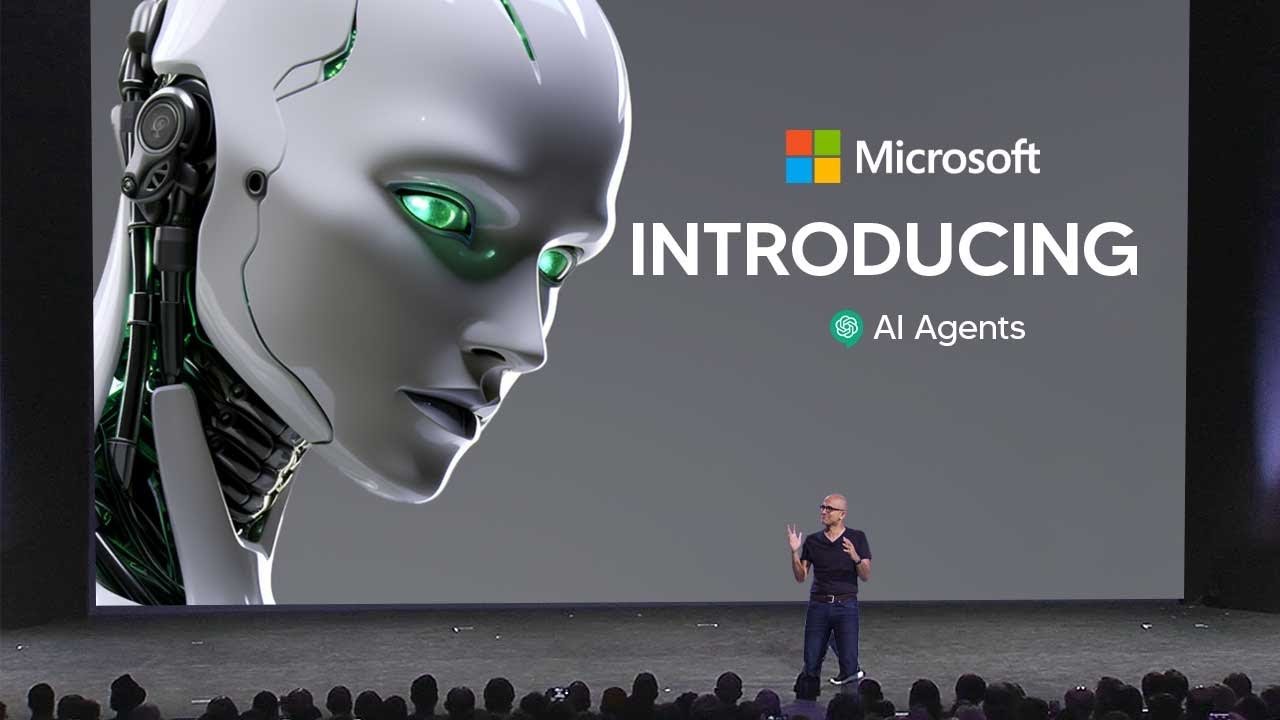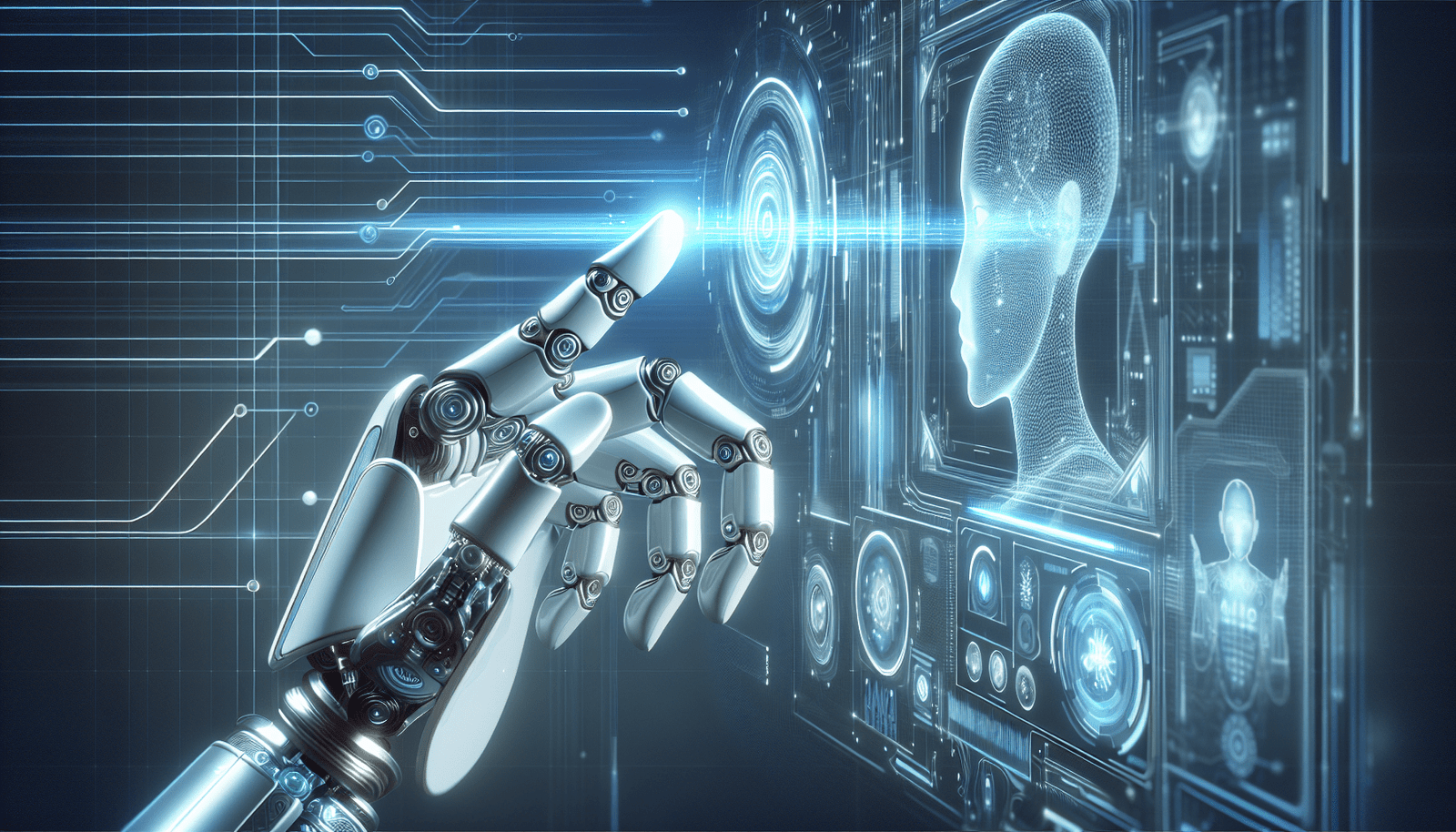Microsoft and OpenAI have unveiled a groundbreaking development in artificial intelligence with the introduction of Copilot agents. These AI agents, designed to operate autonomously, promise to revolutionize business processes by integrating seamlessly into platforms like Dynamics 365 and Co-pilot Studio. Capable of executing tasks ranging from simple prompts to complex operations, these agents are built to enhance business efficiency by automating activities such as lead generation, sales processing, and supply chain management. With an emphasis on advanced reasoning through OpenAI models, these agents are the cornerstone of Microsoft’s vision to transform how businesses function.
In addition to their operational capabilities, these AI agents are equipped with enterprise-grade security measures to ensure data protection and control over agent behavior. A public preview of the agents is set to broaden access next month, allowing businesses to explore and benefit from this transformative technology. By implementing dynamic planning and autonomous functionalities, organizations can expect significant improvements in accuracy, efficiency, and business outcomes. Microsoft also maintains a strong focus on transparency and accountability, providing tools to track agent activities and decision-making processes, ensuring that businesses remain in control of their AI-driven operations.

This image is property of i.ytimg.com.
Introduction to Microsoft and OpenAI’s AI Agents
The collaboration between Microsoft and OpenAI
The union between Microsoft and OpenAI marks a significant milestone in the field of artificial intelligence, combining the strengths of both tech giants to push the boundaries of what AI can achieve. This collaboration primarily focuses on developing AI capabilities that can revolutionize business processes and enhance productivity across various domains. By leveraging Microsoft’s enterprise solutions and OpenAI’s advanced models, this partnership aims to deliver transformative AI solutions that are accessible and scalable for businesses worldwide.
Overview of the AI Copilot Agents
At the forefront of this collaboration are the AI Copilot agents, innovative tools designed to augment human capabilities and automate a multitude of tasks. Copilot agents are not merely assistants; they serve as an integral part of an organization’s operational framework, driving efficiency and enhancing decision-making processes. These agents are equipped with advanced functionality, allowing them to perform complex tasks autonomously, adapt to dynamic business environments, and ultimately transform how businesses operate in the modern digital era.
Understanding Copilot and Its Functionalities
Definition and purpose of Copilot
Copilot is conceptualized as an AI-driven assistant tailored to support users in executing tasks more efficiently. The primary purpose of Copilot is to integrate seamlessly into existing systems, providing users with real-time insights and assistance. This AI agent acts as a catalyst for productivity, assisting in tasks ranging from simple queries to complex problem-solving processes, all while continually learning and adapting to the user’s needs and objectives.
Key functionalities of Copilot agents
Copilot agents boast a wide array of functionalities, making them versatile tools in various business contexts. They can automate routine tasks such as data entry, document management, and lead tracking, as well as more sophisticated operations like data analysis and strategy formulation. The intuitive design of these agents allows them to draw from a vast pool of data, ensuring that users receive accurate and contextually relevant recommendations and insights. Furthermore, Copilot agents are capable of integrating seamlessly with other enterprise software, enhancing their utility across multiple departments.
Agent Constellations and Autonomous Agents
Explanation of agent constellations
The concept of agent constellations refers to a network of interconnected AI agents working collaboratively to achieve complex objectives. Each agent within a constellation has specific functions and roles, yet they collectively contribute to broader organizational goals. This interconnected system enhances the scalability and flexibility of AI operations, enabling businesses to deploy a multitude of agents to handle various aspects of their workflow. The collaborative nature of agent constellations ensures that tasks are executed efficiently and effectively, without duplication of efforts.
Concept of autonomous agents
Autonomous agents represent a significant evolution in AI technology, characterized by their ability to operate independently without human intervention. These agents are designed to identify goals, plan tasks, and execute processes on their own, relying on advanced reasoning and decision-making capabilities. Autonomous agents can adapt to changing environments and self-correct their actions, ensuring that business operations continue smoothly even in the face of unforeseen challenges. Their proactive approach enables businesses to achieve higher levels of productivity and innovation.
AI Integration in Business Processes
Incorporating AI into business dynamics
Incorporating AI into business dynamics involves integrating intelligent systems into various operational processes to optimize efficiency and effectiveness. AI agents like Copilot are designed to seamlessly fit into existing workflows, augmenting human capabilities and automating repetitive tasks. By doing so, businesses can reduce operational costs, improve accuracy, and free up human resources for more strategic activities. The integration of AI in business processes also fosters a culture of innovation, where data-driven insights lead to informed decision-making and competitive advantage.
Potential impact on business operations
The potential impact of AI integration on business operations is profound. With AI agents handling routine and complex tasks, organizations can expect significant improvements in speed and quality of output. AI-driven automation reduces the likelihood of human error, ensures consistency, and enhances overall productivity. Additionally, AI systems provide valuable insights derived from data analytics, enabling businesses to anticipate market trends, optimize resource allocation, and strategize effectively. This transformative impact positions businesses to respond agilely to market demands and capitalize on new opportunities.

New Capabilities and Functionalities Preview
Overview of public preview features
The upcoming public preview of Copilot’s new features introduces an exciting array of capabilities designed to enhance business operations. These features include advanced automation processes, enhanced data analytics tools, and broader integration capabilities. Organizations will have the opportunity to explore these innovations, which promise to streamline workflows and enhance user experience. The preview also allows businesses to provide feedback, shaping the development of Copilot’s functionalities to better meet their specific needs.
Demonstration of new functionalities
The demonstration of Copilot’s new functionalities showcases its ability to transform business processes through automation and intelligence. Businesses can expect to see how Copilot agents manage tasks such as lead generation, supply chain optimization, and customer relationship management. The demonstration highlights the agents’ ability to perform complex analyses and offer actionable recommendations, emphasizing their role in enhancing decision-making processes. This hands-on experience with Copilot’s capabilities ensures that businesses can fully understand and utilize the potential of AI in their operations.
Autonomous Triggers and Agent Functionalities
Explaining autonomous triggers
Autonomous triggers refer to specific conditions or events that prompt AI agents to initiate actions automatically. These triggers enable agents to respond proactively to changes in the business environment, such as fluctuations in demand, operational bottlenecks, or shifts in customer preferences. By configuring autonomous triggers, businesses can ensure that their AI systems react in real time, executing tasks without needing manual intervention. This capability is essential for maintaining agility and responsiveness in dynamic market conditions.
Exploration of agent functionalities
The exploration of agent functionalities reveals the extensive range of tasks that AI agents can undertake within business environments. These functionalities include data processing, report generation, predictive analytics, and customer interaction management. AI agents can operate across multiple platforms and integrate with existing systems, ensuring seamless interoperability. By exploring these functionalities, businesses can identify areas where AI can provide the most value, optimizing their operations and aligning with strategic goals.

Dynamic Planning and Activity Management
How agents manage dynamic plans
AI agents are equipped to manage dynamic plans by continuously assessing and adjusting their actions based on real-time information. This involves identifying the most efficient pathways to achieve objectives, considering variables such as resource availability, time constraints, and external conditions. Through sophisticated algorithms, agents can update their plans and processes to reflect changing circumstances, ensuring that business goals are met efficiently. This ability to execute dynamic planning enhances operational resilience and flexibility.
Real-world implementation examples
Real-world implementations of AI agents in dynamic planning and activity management demonstrate their effectiveness across various industries. For instance, in supply chain management, agents optimize logistics and inventory by predicting demand fluctuations and mitigating potential disruptions. In customer service, agents enhance response times and personalize interactions based on individual preferences and behavior patterns. These implementations highlight the practical benefits of integrating AI agents into dynamic planning processes, showcasing how technology can drive substantial improvements in business performance.
Integration with OpenAI Models
Role of OpenAI models in Copilot
OpenAI models play a crucial role in enabling Copilot agents to perform advanced reasoning and problem-solving tasks. These models are trained on vast datasets, allowing them to generate insights, predictions, and recommendations with a high degree of accuracy. By leveraging the capabilities of OpenAI models, Copilot can analyze complex data, understand nuanced contexts, and deliver solutions that align with organizational objectives. This integration ensures that AI agents remain at the cutting-edge of technology, equipped to tackle a broad spectrum of business challenges.
Safety and security measures
Safety and security are paramount in the deployment of AI agents, particularly when handling sensitive business data. Microsoft and OpenAI emphasize robust security measures to protect data integrity and confidentiality. Enterprise-grade encryption, access controls, and continuous monitoring systems are implemented to safeguard information throughout the AI lifecycle. Additionally, measures are in place to prevent unauthorized access, data breaches, and other security threats, ensuring that AI deployments meet essential regulatory and compliance standards.
Data Protection and Agent Management Strategies
Enterprise-grade data protection strategies
To ensure comprehensive data protection, Microsoft employs enterprise-grade strategies that encompass data encryption, access management, and regular audits. These measures are designed to uphold data privacy and security, protecting sensitive business and customer information from unauthorized access and cyber threats. By utilizing state-of-the-art technologies and practices, Microsoft provides a secure environment for AI operations, instilling confidence in businesses that their data assets are well-protected.
Managing and controlling agent behavior
Managing and controlling the behavior of AI agents is crucial to ensuring they operate within defined parameters and guidelines. Microsoft provides robust tools for monitoring and regulating agent activities, allowing businesses to set rules, track performance, and evaluate outcomes. These management strategies enable organizations to maintain oversight of AI behavior, adjusting parameters as necessary to ensure alignment with business objectives and ethical standards. Reporting and auditing functionalities also provide transparency, supporting accountability and continuous improvement.
Conclusion
Summary of the impact of AI agents
The advent of AI agents such as Microsoft’s Copilot represents a transformative shift in how businesses approach their operations. By automating tasks, providing deep insights, and enhancing decision-making processes, these agents enable organizations to achieve greater efficiency, accuracy, and innovation. The integration of AI agents into business frameworks has the potential to redefine industry standards, driving economic growth and creating new opportunities for advancement.
Future outlook for Microsoft and OpenAI collaboration
The future outlook for the collaboration between Microsoft and OpenAI is promising, with both companies poised to continue exploring new frontiers in AI technology. As AI capabilities evolve, this partnership is expected to drive further innovation, enhancing the functionality and application of AI agents across diverse sectors. With an emphasis on safety, security, and ethical considerations, the collaborative efforts of Microsoft and OpenAI will continue to shape the trajectory of AI development, benefiting businesses and society as a whole.